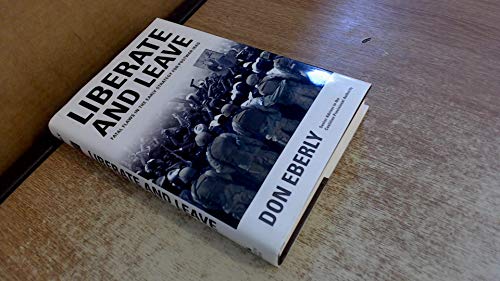Articoli correlati a Liberate and Leave: Fatal Flaws in the Early Strategy...

If you were to talk to those who experienced the Iraq War from the inside, the word you might hear most often is “surreal.” Don Eberly, a senior official at USAID during the lead-up to the war, was recruited to serve on a post-war civil administration team, and his two years of service spanned all phases of the operation. He was, in fact, the first American civilian to make his way into Baghdad city hall after the occupation.
From that up-close perspective Eberly describes what happened in an Iraq completely battered and broken--politically, physically, and psychologically. His ground-level account reveals how the flawed approach adopted by senior officials at the Pentagon--captured in the mantra “brief stay, light touch”--resulted in severe troop shortages and an inadequate plan for post-war stabilization. An insider’s account of what really goes on in a war zone, Liberate and Leave provides a personal tour of the weeks and months before and after the “liberation”--the secret planning process with all its complexities and doubts; attempts to set up a new government amidst lawlessness and looting; painfully vexing policy decisions set against dramatic discoveries of Saddam’s torture chambers and obscenely lavish personal palaces. A searing indictment of a military command utterly out of touch with practical reality, this book, written in a clear, accessible style, offers much-needed insight into how the ways of war and the ways of the world inevitably intersect--and diverge--in our day.
Le informazioni nella sezione "Riassunto" possono far riferimento a edizioni diverse di questo titolo.
Le informazioni nella sezione "Su questo libro" possono far riferimento a edizioni diverse di questo titolo.
- EditoreZenith Pr
- Data di pubblicazione2009
- ISBN 10 0760336806
- ISBN 13 9780760336809
- RilegaturaCopertina rigida
- Numero di pagine310
Compra nuovo
Scopri di più su questo articolo
Spese di spedizione:
GRATIS
In U.S.A.
I migliori risultati di ricerca su AbeBooks
Liberate and Leave: Fatal Flaws in the Early Strategy for Postwar Iraq
Descrizione libro Hardcover. Condizione: New. Codice articolo Abebooks131012

